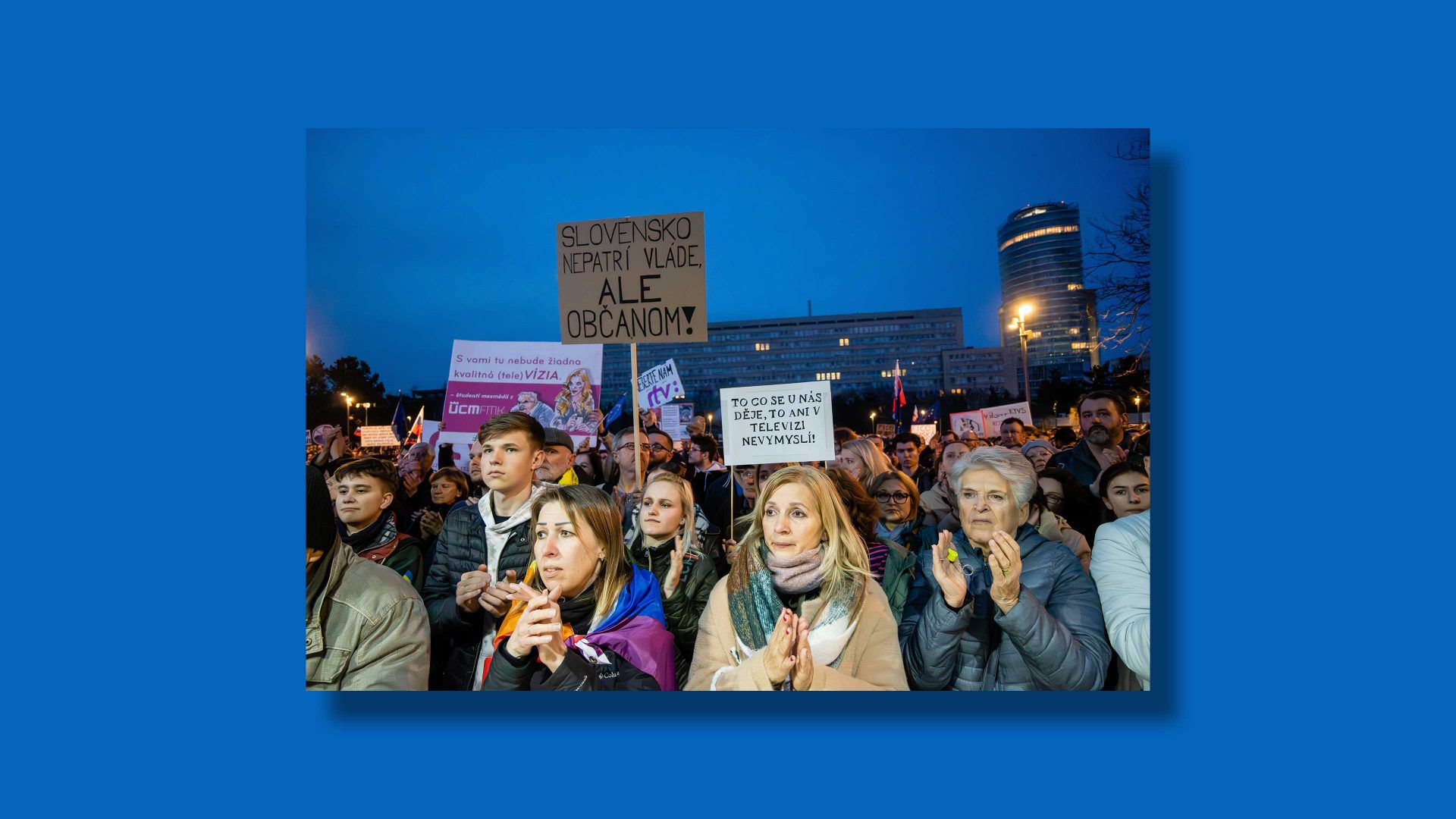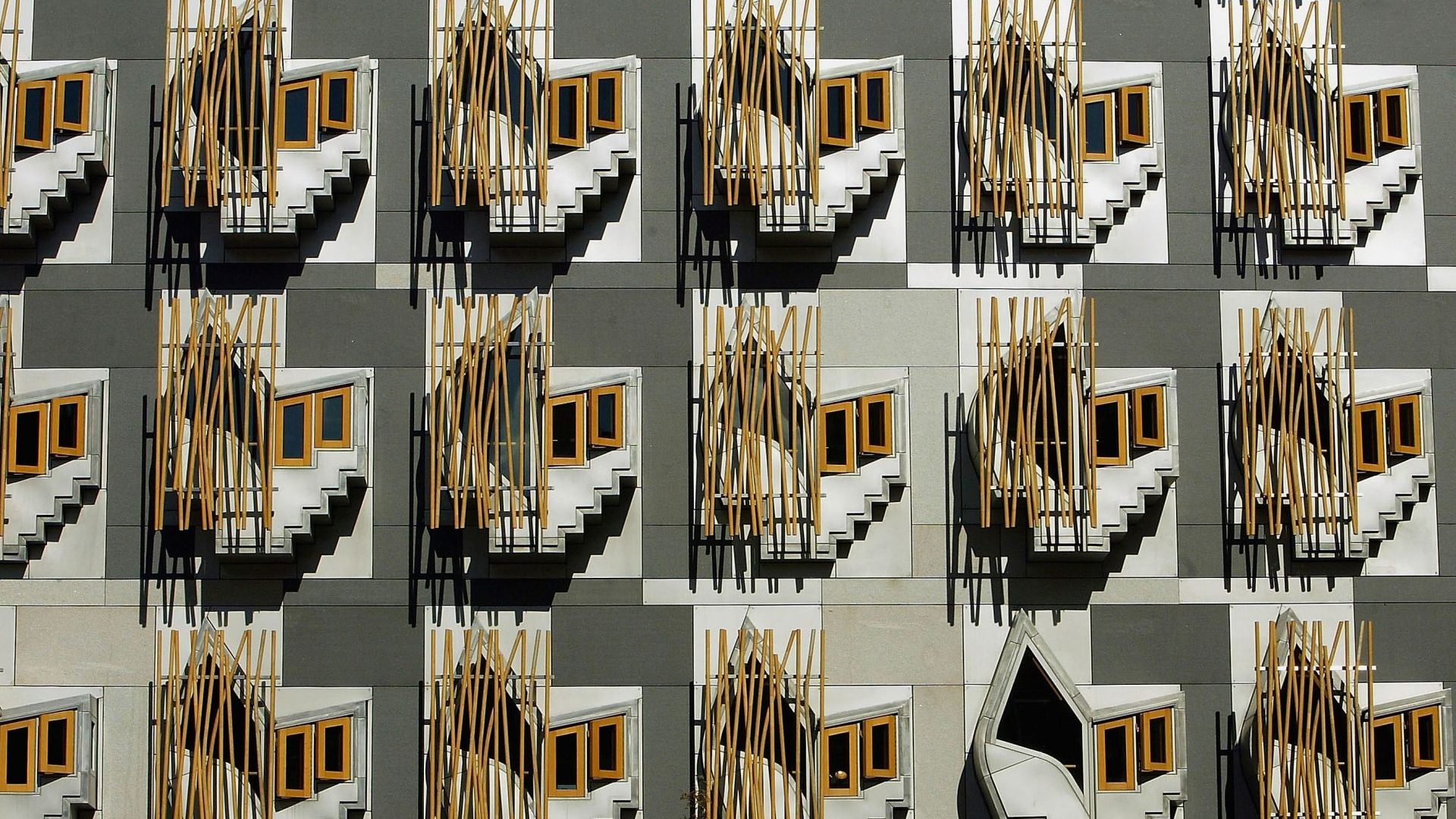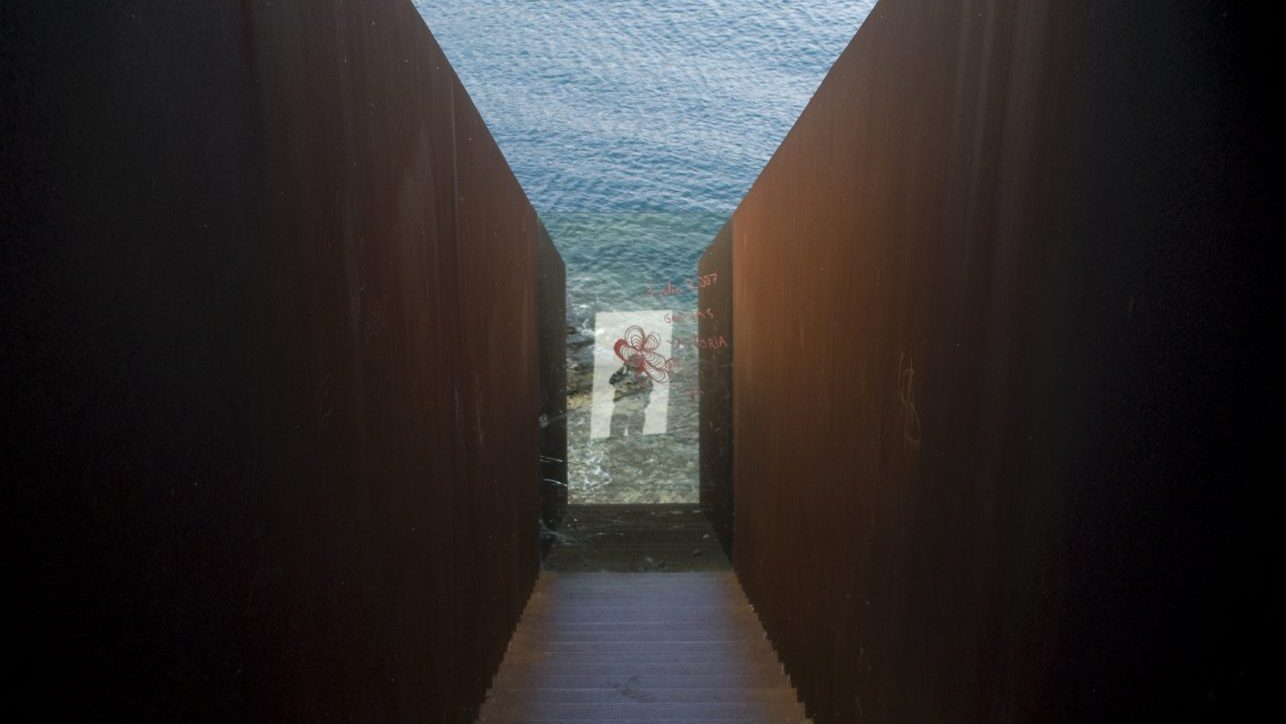Temperatures are soaring to 40C in the main square of downtown Bratislava as around 10,000 people gather, concluding their brief march through the city. Patti Smith’s anthem People Have the Power blares from the loudspeakers. Tens of thousands have assembled in two protests against what leading Slovak dailies describe as a “summertime coup d’état” and “operation shock & awe”, orchestrated by nationalist forces within the government and by the prime minister, Robert Fico.
These are the hottest days in Slovakia, not only in terms of temperatures but also due to the ongoing authoritarian onslaught by the government. The new criminal code has come into force, and former special prosecutor Dušan Kováčik, convicted of corruption offences, has been released from prison. However, the biggest backlash is against the authoritarian reforms disguised as a fight for “proper Slovakian culture” devoid of LGBT+ and liberal voices. The public broadcaster RTVS has ceased to exist, and the directors of the Slovak National Theatre and the Slovak National Gallery, as well as three board members of the Fund for the Support of Arts, have been dismissed during the holiday period by the nationalist minister of culture, Martina Šimkovičová.
The controversial moves are led by the minister, who previously worked as a news anchor for a leading mainstream newscast before being dismissed for comments against refugees that some labelled as racist. She later became known for her radical views on society and gained fame, as well as a following, with her online show spreading theories of alleged conspiracies, before securing her government position. Lukáš Machala, head of the ministry’s administrative office, is her right-hand man. He is known for his tough and aggressive stance on progressive ideas, nationalism, and even for defending the notion that those who believe in a flat Earth have the right to discuss these false theories on the public broadcaster’s airwaves.
Matej Drlička, who until recently held the position of director at the Slovak National Theatre, told me: “The way in which the ministry of culture currently communicates and the steps it takes have all the attributes of right wing authoritarian and totalitarian regimes. Controlling and politicising key free cultural institutions and media, rewriting history, intimidating employees of the state administration with statements about cutting human resources, labelling high art as debauched, highlighting national traditions, false symbols – all of this has always been a part of every transformation from a democratic to a totalitarian regime.”
But, he adds optimistically: “Artists, cultural figures, and creative industry professionals from across Slovakia are rallying together and trade unions are organising their members. This level of unity in the cultural sector has not been seen since the Velvet Revolution in 1989. The recent protests and the actions of the government mark just the beginning of what is expected to be a challenging period, with many institutions facing stagnation and regression, and numerous independent organisations likely to encounter financial difficulties. However, this period will eventually pass, and culture and art will endure.”
Tomáš Hučko is editor-in-chief of the leftist monthly Kapitál and a member of the Open Culture initiative. He has been critical of the government’s actions, and the Open Culture initiative has organised several protests in recent months. Hučko tells me: “These protests will continue and so will the pressure from the government, firing even more directors of cultural institutions. The minister rallies against our protests from fear because she knows that the whole cultural community is against her. This type of unity is unprecedented, and it’s positive that the whole country is now talking about the arts.”
Fico appears almost fully recovered from the failed assassination attempt in May. He has chaired his first governmental meeting, holidayed in Croatia, and regularly appeared in social media speeches throughout the summer. In the latest controversy, he alleged that the protests could lead to further political violence, a notion supported by the party of the recently elected president Peter Pellegrini, who has so far failed to offer even minor criticism of the government’s policies.
Fico has defended the nationalists and Šimkovičová, lending her a vital hand of support. He has been particularly critical of the progressive opposition and recently called for a “dam against progressivism” in a prime-time speech aired on the former public TV.
As people leave the march, feeling disbelief, hopelessness, and fury, they know that the fight for democracy in their homeland is far from over. This is no ordinary summer politics. With the latest actions from the most radical voices within the nearly one-year-old government, more is likely to come when parliament returns from summer recess. There will be no respite in the heavily polarised society and the struggle for the soul of the nation.
Branislav Ondrášik reports for the Slovak daily SME



